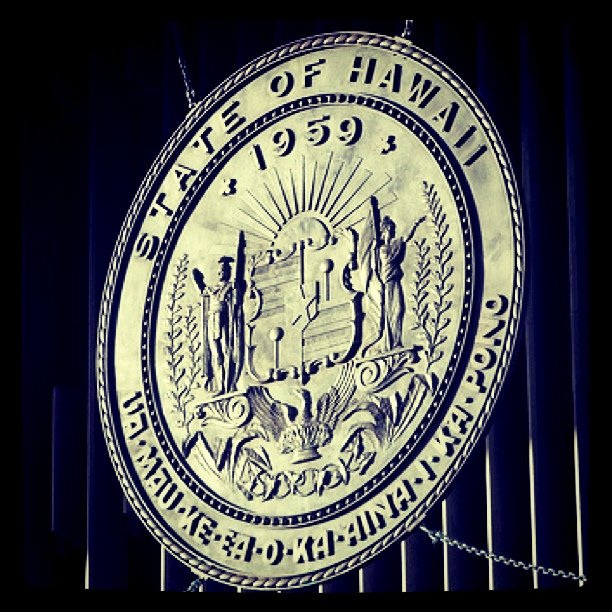By Jere Krischel
In an article titled “What are the ‘Ceded Lands’ of Hawaii?†written for Honolulu Civil Beat on 11/08/2010, Professor Van Dyke makes some critical errors in his assessment of both the history and the law. While acknowledging the Supreme Court’s rejection of the “Apology Resolution,†he still relies on it for his “legal†justification. While quoting from the Admissions Act of 1959, he omits a key clause that differentiates between “should†and “can.â€Â But most problematically, Van Dyke intimates that “Native Hawaiians†were somehow legally separate during the Kingdom period in Hawaii, and that the public lands that were returned to the State of Hawaii have some sort of racial lien on them.
The first red flag we should recognize in Van Dyke’s writing is the use of quotes around the term “illegal.â€Â In order for something to be illegal, we must have several things – a concrete body of law which was violated, a judiciary to arbitrate the dispute, and finally, a finding after a trial presenting both sides of the issue. Without these necessary requirements, we are substituting personal opinion for legal fact. Although PL103-150 (aka “The Apology Resolutionâ€) uses the term “illegal†several times in describing the Hawaiian Revolution, it does not identify any specific law which was violated, any judiciary with jurisdiction over the Hawaiian Revolution of 1893, nor any trial which was conducted to determine guilt or innocence.
So can the “Apology Resolution†unilaterally declare the Hawaiian Revolution of 1893 illegal? Absolutely not. Ex post facto laws are explicitly forbidden by the U.S. Constitution - one cannot simply pass a law which declares someone’s prior actions illegal. Neither does the legislature have the authority to declare someone guilty as a matter of legal fact. In recognition of this and the basic principles of statutory construction, the Supreme Court on March 31, 2009 firmly established that the “Apology Resolution†had no legally binding effect, stating that the “‘whereas’ clauses cannot bear the weight that the lower court placed on them.â€
The second major mistake Van Dyke makes is a subtle, but important distinction between something that is necessary, and something that is allowable. Van Dyke states that the 1959 Admissions Act demanded that “revenues from these lands should be used†for native Hawaiians. This is a misread of the Admissions Act, which provided limits on what the revenues could be used for, not mandates. The specific text of the Admissions Act reads, “such lands, proceeds, and income shall be managed and disposed of for one or more of the foregoing purposes…their use for any other object shall constitute a breach of trust…â€
This means that the State of Hawaii could spend every penny on public education, and not a dime on the development of farm and home ownership. Or, it could decide to spend everything on public improvements and provisions for public use of the lands, while not funding anything else. Any combination of “one or more†would be legal according to the Admissions Act. The only two things that would be a breach of trust would be to spend none of the revenue at all, or spend any of the revenue on a non-permissible use, such as supporting private schools, or the development of automobile ownership.
With his words Van Dyke echoes a misinterpretation of the Admissions Act that OHA has been intentionally cultivating for many years, using it to justify a 20% share of revenue from the public lands of the State of Hawaii to native Hawaiians (although OHA specifically ignores the blood quantum definition used in the Admissions Act). By their rationale, exactly 20% should be allocated to farm and home ownership, exactly 20% should be allocated to public schools, exactly 20% should be allocated for public improvements, and the last 20% should be allocated to make public lands available for public use. But the Admissions Act, as plainly read, has no such mandate whatsoever.
The most insidious misrepresentation Van Dyke makes, however, is regarding the citizenry of the Kingdom of Hawaii, and the chain of ownership of the ‘ceded’ lands.
From its inception, the Kingdom of Hawaii was a multi-racial nation. High Chief Olohana, otherwise known as John Young, fought beside Kamehameha the Great to establish the unified Kingdom, and was the grandfather of Queen Emma herself. The first constitution of the Kingdom of Hawaii in 1840 stated boldly that all people were “of one blood,†and established equality between all races over 100 years before the modern civil rights movement in the United States. Characterizing the Crown Lands or Government Lands of the Kingdom of Hawaii as being dedicated to only one race is a desecration of both the spirit and the laws of the Kingdom from which they came.
With his synopsis, Van Dyke perpetuates the fiction that the ‘Ceded Lands’ are still ‘ceded.’ But the truth is, they are now more properly called the ‘Returned Lands.’ The Crown Lands and Government Lands of the Kingdom of Hawaii were consolidated into the Public Lands of the Republic of Hawaii in 1894. These public lands (about 1.8 million acres) became the ‘Ceded Lands’ in 1898, when the Republic ceded them to the United States on the condition that the revenues and proceeds, except for the parts used for the civil, military or naval purposes of the U.S., “shall be used solely for the benefit of the inhabitants of the Hawaiian Islands.â€Â Van Dyke acknowledges that this created a “special trustâ€, but he carefully omits that the ‘Ceded Lands’ Trust was established for all the inhabitants of the Hawaiian Islands, not just for those of a specific ancestry.
When the Territory of Hawaii was established in 1900 by the Organic Act, it reiterated that the public lands were acquired by the United States in “absolute fee†under the Annexation Act, free from “all claim of any nature whatsoever.â€Â These ‘Ceded Lands’ finally became the ‘Returned Lands’, when the lands were returned to the public of the State of Hawaii as per the Admissions Act of 1959. The circle was finally complete – what had originally been the public lands of all the people of the Kingdom of Hawaii, became the public lands of all the people of the State of Hawaii.
Placing exclusive racial claims upon the ‘Returned Lands’ is an abuse of the trust placed in the State of Hawaii, and a violation of our Constitutional guarantees of equal protection. No matter how many times these false claims are repeated, and no matter how many myths are invented to justify such race-based distinctions, they will never become true, and will never be justified. All of the inhabitants of Hawaii, regardless of ancestry, have a powerful claim to the ‘Returned Lands,’ as clearly demanded by the Organic Act and the legacy of the multi-racial Kingdom of Hawaii.






 By Jere Krischel
By Jere Krischel